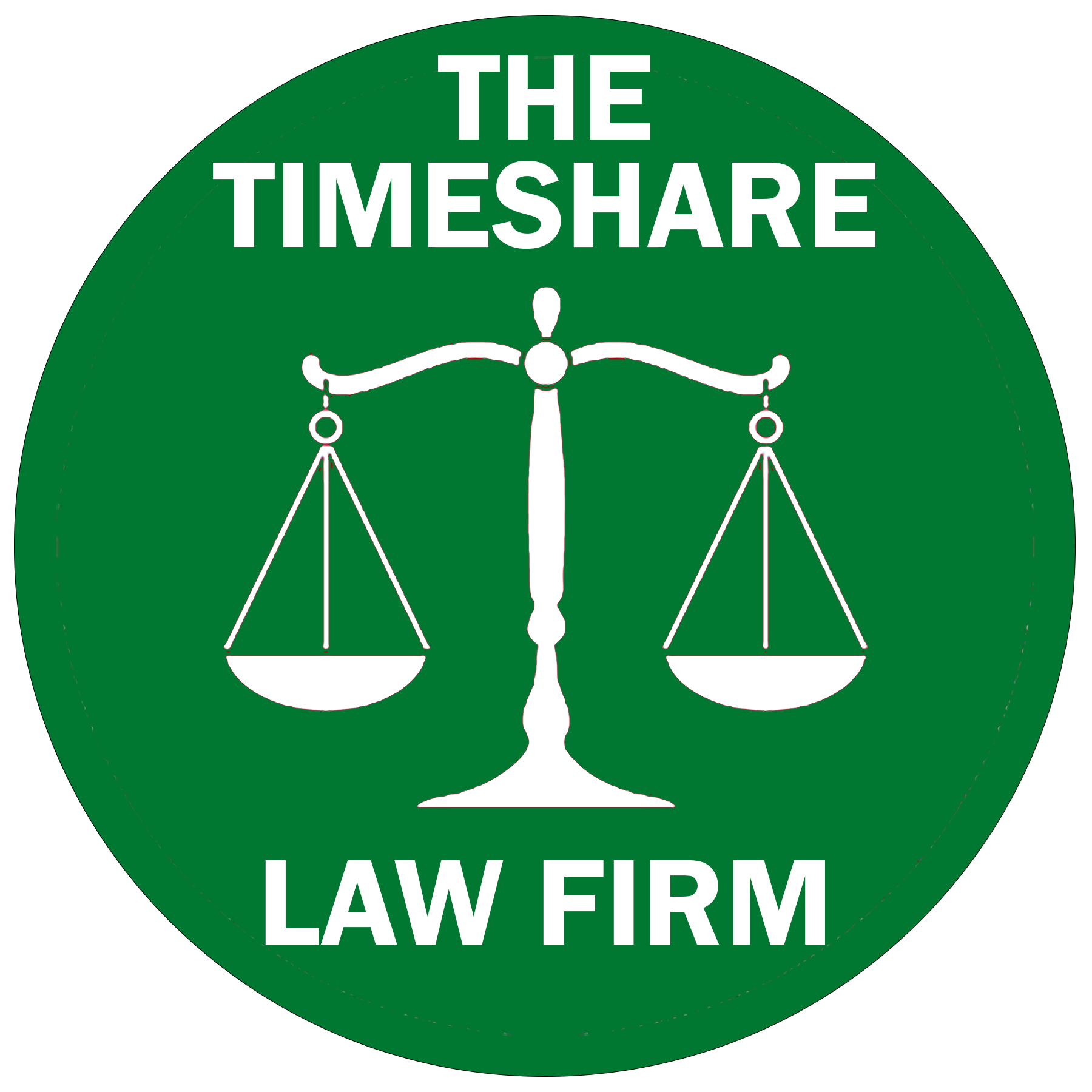Many “Timeshare Exit Experts” write guides on how to get out of timeshares. Usually, these guides are full of free advice and methods that are known and intended to not work (or can even hurt you legally) in hopes that you will just submit to their help. But what if these self-proclaimed experts are really just Ex-Timeshare Salesmen with a whole new set of lies using erroneous information designed to sell you on a dream (getting out) that is a hollow promise? Guides can be written by unscrupulous actors attempting to scam you and leave you spending more money and still stuck in your timeshare. This article will show you the legitimate routes, and expose the common lies, scams, and outdated information that still circulates across the Internet.
The first thing to know about exiting timeshares is that the timeshare aftermarket industry is rife with fraud. If anyone who is not a Lawyer (one-on-one) directly advising you on how to legally end a Timeshare Contract, they are probably committing a Felony in many states. If companies claim to know how to legally end a timeshare contract, they are engaging in Unauthorized Practice of Law (UPL) by advising upon legal contracts (a UPL) and claiming to represent clients in breaking resort contracts on their behalf (another UPL). Sometimes they claim to be able to sell your timeshare (for a profit), when they do NOT sell for $1.00 on eBay. These companies are almost always scams. Recently, the U.S. Treasury cracked down on several of them, which were actually fraudulent timeshare aftermarket companies funding Mexican Drug Cartels (Source: https://home.treasury.gov/news/press-releases/jy1315)
Even some companies with the word “law” in their names may not be actual lawyers themselves, often just salespeople (and Lawyer-Client representation cannot have a third party salesperson advising on legal contracts or seeking money for a lawyer’s representation). Check that the lawyer is real, check their license and call the phone number listed for the official Lawyer at their Bar Association.
To help identify these timeshare aftermarket scams, remember this memorable acronym:
V-A-L-O-R
Verify Credentials: Ensure that the company is more than just a show. Read their blogs and other information on their website. If they have a “featured on” section with news articles, click on the news links to see if they link anywhere. If they don’t, it is a questionable sign. If they say they are or have a Lawyer, verify personally with that Lawyer, checking Bar Association credentials.
Avoid 100% Guarantees: 100% guarantees may sound good on paper, but they are illegal for a lawyer to promise. A real lawyer will not give you any guarantee; they may only have a high success rate, but not a crystal ball. If a non-lawyer company offers this guarantee, consumers will most likely find out later that it’s a lie and not actually honored. The FTC States in a warning: “No one can guarantee a sale or big returns.” (Source: https://consumer.ftc.gov/articles/timeshares-vacation-clubs-related-scams)
Locate Bar Information: Whenever you talk to a Lawyer, ensure that you are speaking to who they claim to be. Many scammers pretend to be lawyers. Make sure you can find your Lawyer’s bar information for the state they are practicing in. Any lawyer should be willing and able to provide a link to their bar page. Also, verify that the phone number on the page is theirs by calling it, and they should be able to talk to you at that number.
Only Talk to a Lawyer about Your Contract: When you consider hiring a law firm, make sure you are speaking directly to an attorney about your contract. If the person you are discussing case details with claims to be a “legal representative” without proof of their license, you do not have attorney-client representation, and this can adversely affect your Legal Rights.
Report Any Scams: If you are unable to verify these facts about a fake lawyer or a salesperson supposedly working with a lawyer (a UPL), and you suspect fraudulent activity, report them to the FTC (Source: https://reportfraud.ftc.gov/#/)
Methods of Relief
Now, let’s go over the actual verified ways to get out of a timeshare:
Rescission Period: this only works if you just signed contracts. If not, you may not have this option anymore. However, for anyone who just bought a timeshare or an upgrade, you need to check the rescission period of the sate of purchase. check you can see if you can still cancel your contract with a complete refund. If you are within the Statutory cancellation time, then either call a lawyer for about $500 to make sure you are legally compliant, or if you are sure you know how, then do it yourself, but be sure to not delay or wait; handle it immediately, or you will require greater legal assistance to get out.
ENFORCE YOUR LEGAL RIGHTS.
Utilize Your Rights and Sue Over Lack of Proper Disclosures, Warnings and Advisories by government regulators which were specifically designed to protect timeshare purchasers at the time of sale, BEFORE they sign a timeshare sales contract. These government-mandated warnings typically include:
- Timeshares are not a good investment.
- Timeshares are not an appreciating “asset” for your children.
- Timeshares are not easy to sell, and sometimes
- Advisories that warn against relying on oral promises made by sales reps and managers.
9000 Law Firm Clients; 9000 prospective timeshare purchasers; 0 (zero) Government disclosures in compliance with the Law; 9000 timeshare owners released with this as their #1 Cause of Action.
If the resort failed to provide government mandated warnings before you signed any timeshare contracts, you may have grounds to sue and get your money back. Even if you purchased it many years ago, you may still have rights under the Discovery Rule (Tolled Rights). Read our press release on our current Class Actions for more information. (Source: https://theabramsfirm.com/we-are-launching-class-action-lawsuits-against-many-major-timeshare-resorts/)
Common Lies Still Being Spread:
Just Sell It: Selling a timeshare is not a realistic solution to being stuck in one. When you purchase a timeshare, you don’t really own anything. The “Deeds” are typically “Sham Deeds” without real property rights and you just have “points” that are not worth anything in the real world. In fact, what you “own” is debt. No one will ever buy thousands and thousands timeshares for even $1.00. You can verify this by checking eBay, where thousands of timeshares do NOT even sell for $1.00: https://www.ebay.com/sch/i.html?_from=R40&_nkw=%241+timeshare&_sacat=0&LH_TitleDesc=0&rt=nc&_udhi=2
Threats of credit reporting: Negative reports will affect your credit score. Delinquent payments could lead the resort to sue you. Suing them first may be a better strategy to end ownership. Moreover, if you are in the Military or have work related Security Clearances, where nonpayment could result in job loss because of security clearance violations: https://theabramsfirm.com/how-timeshares-take-advantage-of-u-s-military-personnel/
Pay Off Your Mortgage to Give it Back to the Resort: This scam pays-off a resort for committing fraud, and they probably will deceive you, but still never let you out. Even if the Timeshare is paid-in-full, most resorts will never let you out, because their contract has you locked in. And if you call them, beware because you can lose legal rights and they often make new lies to entrap you further. Resorts can and do reject these requests and keep you in the timeshare. Worse, if they are not letting you out, they can still deceive you and get more money out of you. This complaining action may also start the clock on your statute of limitations on legal rights, like fraud, allowing the resort to stall until your legal rights expire. Resorts are adept at keeping people locked into contracts, so we generally suggest seeking a comprehensive release with legal representation. These resorts are worth hundreds of millions and billions of dollars, and usually won’t act if you can’t harm them. A Litigation Law Firm with very low flat rates and no further attorney fees, is a huge threat to the resorts (a Plaintiff the resorts can’t muscle-out financially).
Rent It: If at all possible, you must wait 6-11 months for a room, pay a big fee for a non-owner booking, and then coordinate it for someone else, which all may be way too difficult, if at all possible. Most owners have great difficulty booking or cannot even book it for themselves, so high profit rental returns, are simply not possible as promised.
Donate Your Timeshare with Tax Benefits: This is a scam that has been appearing again. While you “can” donate a timeshare to charity, no legitimate charity does that. It is usually an in-house charity where the money ends up going to the timeshare aftermarket company, and the timeshare liability may not have been waived by the resort… so the consumer lost even more money and you still own your timeshare. Charities do not want timeshares because they are not worth even $1 and have high, ever-rising maintenance fees, making them a huge financial drain. Charities or corporations do not want to accept annual debts of timeshare interests that are worthless in resale. Additionally, don’t believe there is money to be made through your IRS taxes. IRS Tax Law involves donating an item of value, but if the timeshare is worth $0.00, there can be no tax deduction. Furthermore, almost all timeshares may never qualify for IRS tax deductions due to other reasons (individual vacation use timeshares vs. running it as a business for rentals). The Department of Justice cracked down on this type of scam a few years ago, read their press release: https://www.justice.gov/opa/pr/federal-court-shuts-down-abusive-tax-scheme-involving-improper-deductions-donating-timeshares. And our Law firm first joined forces with the national senior organization AARP and consumer advocate Clark Howard all the way back in 2017, to expose this sort of Donation Scam Fraud.
Timeshare Cancellation Companies: These companies are highly unregulated and very likely to be run by a former timeshare salesman and very likely to be fraudulent. We recommend applying the V-A-L-O-R acronym to these companies as well, but from a distance, as we never recommend going to an Exit Company or Lawyer “service” companies where you don’t have Lawyers directly working with you on all aspects of your legal case until final resolution. Even if you decide not to work with our Law Firm, we recommend at least hiring a real, verifiable Lawyer who passes the V-A-L-O-R test.
Thank you for reading our guide to getting out of a timeshare. Our Law Firm has for 19 years, worked exclusively in Consumer Timeshare Law. Over 9,000 Clients have got out of their timeshare and all the associated resort debts, past present and future. Give us a call for a case analysis: (321) 224-1111.



Comments are closed